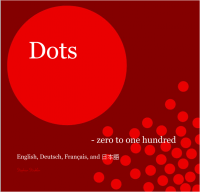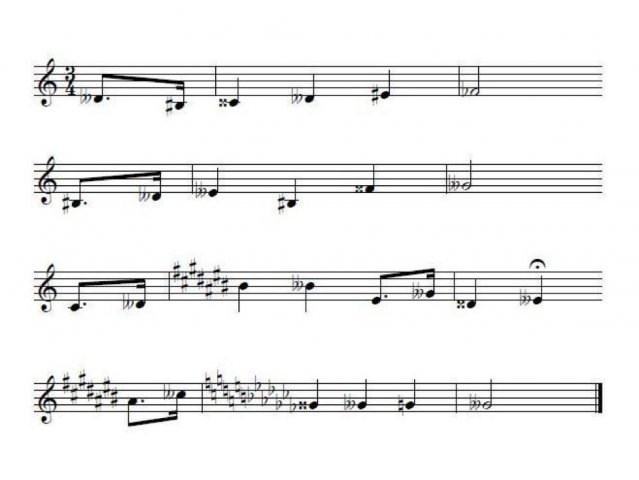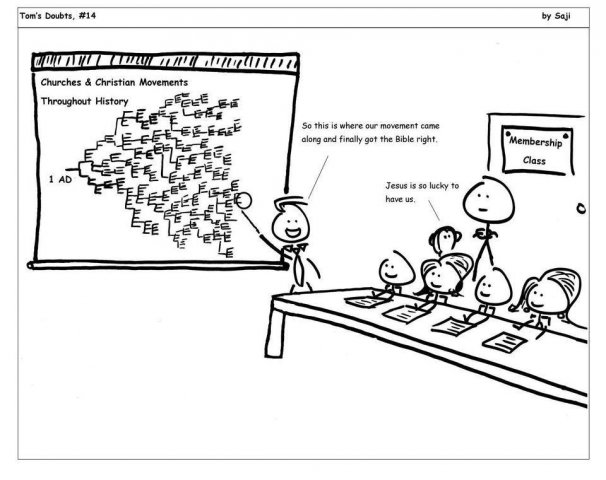Woo-hoo! My copy of Dots: Zero to One Hundred arrived today!
Given that the events occurred not far from home, yet have become international news, I'll say a few words about the Trayvon Martin case. Not many (by my standards), because, frankly, no one knows enough to say anything definitive, though that's not stopping everyone and his sisters and his cousins and his aunts from speaking out.
I won't say, "it's not about race," because it may very well have been—who knows what was going on in the mind of George Zimmerman. Or Trayvon Martin, for that matter. But from where I sit, it's about a lot more than race. "Walking while black" was only one of three strikes against him, though it may have been the fatal one. He was also walking while male, and walking while young.
I've written before of the frightening, and abusive, encounter that a young friend had with the police, a young man whose only "crime" was biking while young, and male, and (legitimately) in his own neighborhood at a time when the deputy thought he should have been sitting in a school classroom. Certainly it was wrong of Zimmerman to consider Martin to be suspicious based on race, if those were indeed his thoughts, but it is equally wrong to suspect someone of ill intent based on sex or age, and I believe that happens frequently, insidiously, under the public radar, and without going viral on social media.
In Travon Martin's case—as in O.J. Simpson's, and Casey Anthony's—it's the public uproar that has me the most concerned, however. We the People believe we know better than those who have seen the evidence and heard the arguments, and want "justice" done without any respect for or patience with the due process guaranteed every one of us. Yes, the system sometimes fails, sometimes makes mistakes; I've seen it fail our own family. But vigilante "justice" is a terrifying prospect. Remember A Man for All Seasons?
What would you do? Cut a great road through the law to get after the Devil? ... And when the last law was down, and the Devil turned round on you—where would you hide ... the laws all being flat? This country is planted thick with laws from coast to coast ... and if you cut them down—and you're just the man to do it—do you really think you could stand upright in the winds that would blow then? Yes, I give the Devil benefit of law, for my own safety's sake!
Without implying comment one way or another on the Second Amendment issue, I'll end with a quotation from Robert Heinlein's science fiction book, Tunnel in the Sky, in which a seasoned military officer expounds on the dangers of guns in the hands of the untrained:
One time in a hundred a gun might save your life; the other ninety-nine it will just tempt you into folly. ... I know how good a gun feels. It makes you bright-eyed and bushy-tailed, three meters tall and covered with hair. You're ready for anything and kind of hoping you'll find it. Which is exactly what is dangerous about it.
Such folly took away Trayvon Martin's life, and destroyed George Zimmerman's. There's a reason police officers receive intensive training—and even so they occasionally make fatal mistakes when threatened. That our young friend was merely abused, rather than shot, may have had less to do with his not being black than with being accosted by a real sheriff's deputy rather than a wannabe.
JoAnn Falletta, conductor
Elmar Oliveira, violin
John Callahan: Pulsar (World Premiere)
Saint-Saëns: Violin Concerto No. 3 in B minor, op.61
Prokofiev: Symphony No. 5
Last night's Orlando Phil concert, the final for the season in our series (Classics), was certainly enjoyable, but through no fault of the excellent conductor, soloists, and orchestra, it came across, for me, as a little bland. Listening to music performed cannot compare with making music oneself, and no mere concert can hope to compete with the experience of being part of a grand event, like the afternoon's Consecration of the Rev. Gregory O. Brewer as Fourth Bishop of Central Florida. About that I will write much more, but I'm waiting for the complete service to be uploaded to YouTube. (Part 1 available now, if you want a preview, but most if not all of my readers will appreciate the effort I'm making to provide a guide to the very long service.)
A post about the OPO concert is in order, however, in order to say this: Remember the name, John Callahan. He's a piano student at Florida State University, and won the OPO's Young Composers Challenge in 2008 and 2009. Pulsar was commissioned for the OPO by local musician and philanthropist Stephen Goldman, founder of the Young Composers Challenge. I can't say that Pulsar made my heart sing the way the music of John Dupuis does, but even I can tell that Callahan is extremely talented and composes at another level altogether.
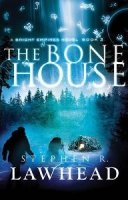
The Bone House by Stephen Lawhead (Thomas Nelson, 2011)
The second book in Stephen Lawhead's Bright Empires series took me a lot less time to read than the first, and not just because it's almost 50 pages shorter. I took both the book and the audio version out of the library, and supplemented listening on my daily walks with reading in bits and snatches at home. Despite a full schedule, I devoured the book in four days. It turns out I read a whole lot faster than a read-aloud pace. Much, much faster. However, I read for content, not beauty, not the first time through. For really good books, like The Lord of the Rings, I soak in the beauty through multiple re-readings.
The audiobook forces me to pay attention to the descriptions as well as the story, and I enjoy a much more vivid picture of the setting, characters, and events. It's almost, but not quite, enough to make me want to listen to the entire book, since I imbibed most of this book via the printed page. I think I spent more actual time listening, but covered many more pages by reading.
The Bone House is if anything more unbelievable than its predecessor, The Skin Map. The world—multiverse—of Lawhead's imagination just gets stranger and stranger. But it's also getting more beautiful (yes, I managed to pick up some of the beauty on the fly) and more interesting. There's also less of the "testosterone factor" that annoyed me in the first book: more attention to brains and character than to brawn and beauty.
The only problem with having finished The Bone House so quickly is that the next book in the series, The Spirit Well, isn't scheduled to be released until September.
With a tip o' the hat to Sarah D., who helped make my Facebook presence worthwhile by passing along this gem of a sight-singing test:
Permalink | Read 3964 times | Comments (5)
Category Just for Fun: [first] [previous] [next] [newest]
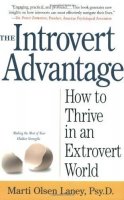
The Introvert Advantage: How to Thrive in an Extrovert World by Marti Olsen Laney (Workman, 2002)
This book was recommended by a friend, and while it did not suffer from "obligation + time pressure = irrational barrier syndrome," I did have to struggle through the first third of the book, which didn't say much that I found useful. Perhaps if it had been my introduction to the introvert/extrovert distinction, I'd have felt differently. But I found the author's approach overly psychotherapeutic—no doubt because she is, herself, a psychotherapist. I also felt that her description of an introvert didn't fit me as well as others I have read, and I had a hard time getting over her use of the terms "innie" and "outie," as if introverts and extroverts were belly buttons.
However, the rest of the book is bristling with sticky note markers. There's a section on parenting introverted/extroverted children that in itself makes borrowing the book from a library worthwhile. My primary complaint is that I'd be afraid to let any of my extroverted friends read it. Valuable as are some of its insights, I fear an extrovert would take from it the attitude, "See, I knew introverts were crazy, weak, inferior creatures." Despite the title, there's not a lot about why it's great to be/live with/work with an introvert; I was hoping for fewer tips on how to overcome my weaknesses and more on how to play to my strengths. Nonetheless, there's a lot worth reading, especially if you're willing to skim over what doesn't apply.
My best take-away? There are measurable, physical differences in the brain pathways used by introverts and extroverts. While we can, and often should, train ourselves to function in our areas of weakness, it's important to realize that something an extrovert takes for granted—as easy, requiring no thought, something "every civilized person" does—may be counter-intuitive and extremely difficult for an introvert. And vice versa.
Here's a taste—or maybe a full meal—of The Introvert Advantage. (More)
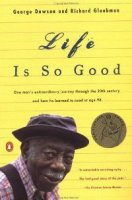
Life Is So Good by George Dawson and Richard Glaubman (Penguin, 2001)
George Dawson was born in 1898, and died in 2001. The 20th century was his in a way very few others can claim, and to read his story is to see the history of that momentous century from the inside, and to realize how much more important character and attitude are than any external circumstances.
George Dawson grew up hearing first-hand stories of slavery from his grandmother and great-grandmother. As a ten-year-old, he watched his older friend, Pete, be lynched for a crime George knew he did not commit.
"I will never work for or talk to a white person again," I said with anger.
My father, who had seemed lost in his own thoughts, jerked his head and looked at me.
"That was wrong what they did," I said. "Those white folks are mean and nasty people."
Papa swallowed hard and pulled up on the reins so that the wagon stopped.
He turned toward me. "No. You will work for white folks. You will talk to them."
"But, Papa, what about Pete? He didn't do nothing and they killed him."
"Yeah, I know they had no cause for that, but-"
I cut my father off short, something I had never done.
"But they made Pete suffer so."
"His suffering is over, son. It's all over for Pete. You don't need to worry for him."
"They took his life. Pete was still young. He should of grown to be a man."
"That's so," Papa said. "It was Pete's time, though. His time had come and that's that."
My anger still had some hold on me and I swallowed hard.
Papa looked at me and said, "Some of those white folks was mean and nasty. Some were just scared. It doesn't matter. You have no right to judge another human being. Don't you ever forget."
My father had spoken.
There was nothing to say. I didn't know it then, but his words set the direction my life would take even till this day.
Dawson's work life began when he was four, combing cotton for his family. By eight, he was working for other farmers, and doing "a man's work" by ten. He retired at 79, and finally learned to read at 98. In the meantime, his hard work, his determination to do the right thing—at which he mostly, though not entirely, succeeded—and his positive attitude took him far from his native Texas. Those were the days when a strong body and a good work ethic could get you a job and a place to sleep, and "homeless" was not a diagnosis. But he always returned home to Texas, even after a stint in Mexico where he discovered the pleasures of being considered a man, rather than a "colored boy."
There were a couple of cafes that I stopped in, not so much 'cause I was hungry but because they would serve me. I knew I was in another country when I could walk through the front door and where I sat could be my own choice. I liked that. Life was good, but I was too used to working, and after a week I caught the train back to Texas.
Like hardship and injustice themselves, it's easy for books about hardship and injustice to wallow in darkness and lead only to depression. Life Is So Good is remarkable, and well worth reading, for being able to report the darkness faithfully while infusing it with light.
Life is so good. I do believe it's getting better. — George Dawson
Note: There are a few places where the book is not appropriate for an eight-year-old, but Jonathan is not far from being able to learn much from reading it, and given that he liked God's Smuggler, it's clearly not beyond him.
Permalink | Read 1923 times | Comments (0)
Category Just for Fun: [first] [previous] [next] [newest]
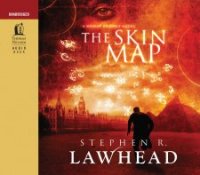
The Skin Map by Stephen Lawhead (Thomas Nelson, 2009) (audiobook, read by Simon Bubb)
I review books for the publisher, Thomas Nelson. I've never before reviewed their fiction, because, frankly, it usually doesn't sound all that interesting. However, this offer made me sit up and take notice, because I've enjoyed Stephen Lawhead's work before. Add the fact that what was offered was the audiobook version, and I was hooked: I figured it would be just the thing for my upcoming long flight across the Atlantic.
I was wrong about that part. Over and over I repeated the pattern: Listen, doze off, awaken in a different part of the story, doze off, etc. Not because the story wasn't interesting, but because I needed sleep more than I needed entertainment.
Home again, I started the story anew, and found it a wonderfully inspiring accompaniment to my daily exercise walk. The prospect of hearing a few more chapters of the book was just the incentive I needed to get out and get going. Plus, it's really hard to fall asleep while walking.
Lawhead takes the concept of ley lines as his jumping off point (literally) in this tangled adventure of multiple realities. Or perhaps one reality that is infinitely more complex than we have supposed. Ley lines were new to me—I was as ignorant as his long-dead great-grandfather found protagonist Kit Livingstone to be. In The Skin Map, the power of ley lines is discovered to be, not legend, but cold, scientific fact, and a wrong turn one day in London takes Kit from his directionless, boring existence into adventure, danger, and more directions than he fears his mental health—and his stomach—can handle.
Without doubt, it was easy to be caught up in the adventure, and the mystery. But my favorite parts of the book were its well-researched intersections with everyday life: in modern England, 17th century England, 17th century Prague, Macao during China's Qing dynasty, 18th dynasty Egypt, and more. My least favorite were the drawn-out descriptions of the physical appearance of every female character encountered, and the even more interminable battle scenes, both of which were obviously included for the more testosterone-laden among us.
Therein lies the weakness, and the strength, of the audio version. Were I reading, instead of listening, I'd have quickly skimmed over those parts I found dull; instead, I was forced to wait, impatient, through them. On the other hand, I would probably also have given short shrift to the many highly descriptive scene-setting passages, and this format forced me to listen, to enjoy, and to appreciate a much more vivid picture of each setting than I would have envisioned on my own. Narrator Simon Bubb also does a fantastic job of bringing the characters to life through their voices, making this audio version an enhancement, rather than merely a slower and more laborious—albeit hands-free—way of reading the book.
On my own personal scale, The Skin Map is not nearly as good as The Lord of the Rings (one of my favorite stories of all time), and a whole lot better than Harry Potter (which I enjoyed, though less and less, I'll admit, after the third book). It's an interesting concept, a riveting story, and well-written to boot. True, there were times when I sighed, "Oh, come on, that's not plausible"—but that tends to happen to me even with nonfiction books. Astonishingly, for this age, Lawhead manages to craft a complex and engaging tale without ever being offensive, edgy, or over-the-top. I can't say for certain that there are no "grandchild warnings"—I'm pretty sure "bloody" occurs a few times, not related to battle scenes—but any potentially offensive language is rare, minor, and appropriate to the context.
The book is not short—448 pages in printed form—but the end came long before I was ready. Really, it seemed the story had just gotten started! That was when I discovered the sad, and happy, truth: the book was over, but the story had only begun. The Skin Map turns out to be the first of what is intended to be a five-book series. Fortunately, the second is available at the library, and this morning I reserved it. The third, however, has yet to be published....
The Skin Map is not a movie—though I think it would make a good one—but it has a "trailer" anyway. Who knew?
I saw this on John Stackhouse's blog, and find it both sad, and amusing, and open to many more applications than Christian denominationalism. Enjoy! (Click on the image to enlarge it.)
Permalink | Read 2330 times | Comments (0)
Category Just for Fun: [first] [previous] [next] [newest]
Osmo Vänskä, music director
Midori, violin
Brahms: Variations on a Theme of Joseph Haydn, op. 56a
Sibelius: Concerto for Violin in D minor, op. 47
Beethoven: Symphony No. 5 in C minor, op. 67
Our Orlando Philharmonic Orchestra season tickets brought us a bonus: last night's concert by the Minnesota Orchestra, featuring violinist Midori, now forty years old but with a 29-year professional career behind her. Definitely worth going out on a Friday night for. What's more, on a weekend when we must lose an hour, we gained a day, a psychological advantage at least as real as whatever people think we gain by fiddling with the clocks. Since most of our concerts are on Saturday nights, today felt like Sunday—until we realized Sunday was still a day away!
Permalink | Read 2461 times | Comments (0)
Category Everyday Life: [first] [previous] [next] [newest]
Thanks to my sister, I have three Trader Joe's reusable grocery bags that would just love to be used at an actual Trader Joe's. And now, at last, Florida has a Trader Joe's store!
But it's in Naples. Granted, we really enjoyed our visit to that part of the state back in Novemeber, but I'm not one of the "Trader Joe's tourists" who are travelling hundreds of miles to the store. There's a store opening soon in Sarasota, but that's still too far away.
Nonetheless, I have hope. Now that the Florida border has been breached, can Orlando be far behind?
I note that the Naples store went in where a Borders bookstore went out. We're getting a Michael's at our former Borders. Not that Michael's is a bad idea, but there's already one nearby, and wouldn't it be fantastic to be able to walk to a Trader Joe's? Oh well, I'll be happy enough for one within a 15-minute drive and not on the far side of town.
We are the Folk Song Army
Everyone of us cares.
We all hate poverty, war and injustice,
Unlike the rest of you squares.
(Tom Lehrer, 1965 or earlier)
With all the publicity given to the Kony 2012 social media campaign, this looks like a good time to bring back Tom Lehrer's wonderful Folk Song Army. (Brief, mild, visual grandchild warning at the very beginning.)
Seriously, there is good reason to worry that this popular campaign will do more harm than good. As this Guardian article explains,
There is no question that the LRA has been one of the most horrifying armed forces in the past half century. But while the video urges spreading the word, signing a pledge, buying an action kit of Kony 2012 bracelets and posters, and of course donating to [advocacy group] Invisible Children, it's hard to understand how this will aid the current slow chase of Kony and his forces through some of the most intractable terrain in the world.
US military advisers have been helping the Ugandan army track the LRA since October, and Invisible Children wants to keep pressure on the US to maintain or improve that assistance. But as there has not been a whisper of possibly withdrawing this support, raising it as the reason for urgency seems slightly odd.
...
The arc of the video tells you that before, no one cared but, thanks to technology and Invisible Children, everyone can now take the necessary action to earn Kony the infamy and arrest or death he deserves.
But since Invisible Children as an organisation began with a few north Americans stumbling into a conflict they didn't know existed and then resolving to help the child victims by making a movie, the base level of great white saviourdom is already high. Implying that finally now, by getting the word out about Kony via celebrities, bracelets and social media, can the LRA be ended plays into this narrative of white rescuers coming to help poor Africans and totally ignores the efforts, good and bad, by Ugandans to fight the LRA for 25 years. I belong to a discussion group of hundreds of Ugandan journalists, and so far only one has been willing to stand up and say this campaign is a good thing (and mainly because it might help more people find Uganda on a map). Nearly everyone else finds Kony 2012 self-aggrandising, patronising and oversimplified.
Remember the war against Franco,
That's the kind where each of us belongs.
Though he may have won all the battles,
We had all the good songs!
So join in the Folk Song Army,
Guitars are the weapons we bring
To the fight against poverty, war, and injustice.
Ready, aim, sing!
Tired of waiting for Netflix to offer anything beyond the second season of the Duggar family's TV show (they're now on Season Six), I discovered the Duggar Family blog, which despite the name is a fan blog, not run by any of the Duggars themselves. Apparently with the blessing of host channel TLC, this site has links to all episodes from the first specials through Season Five!
Now this discovery bodes ill for my overflowing inboxes, my piles of files and files of piles, and my endless backlog of past-due work and future projects. I had to figure out a way to redeem the time, and I did. Because the videos are hosted on YouTube, each episode is divided into three parts of five to ten minutes each. Not only does this slice them into manageable portions that can be squeezed into odd bits of time here and there, but it also suggested my new exercise plan: I only allow myself to watch while exercising. The anticipation of watching a show gets me started, the distraction of the show keeps me going until the end, and the exercise requirement sets a limit on how much I'll watch in a day. I'm a very wimpy exerciser. Some people can watch a whole movie while exercising; I'm doing well to manage eight minutes at at time.
It's a lot more fun to watch the shows guilt free, knowing I'm doing something healthful and productive!
Permalink | Read 2129 times | Comments (2)
Category Everyday Life: [first] [previous] [next] [newest]
The following headlines were presented as the top three on my Orlando Sentinel news feed this morning:
Transgender woman denied drinks during ladies night
Florida suspect accused of eating brain due in court
Mom accused of strangling 2-year-old with bra returns to court
The Sentinel is a mainstream, respected newspaper, with several Pulitzer prizes to its credit. Apparently, supermarket tabloid fare has become the new normal.
Permalink | Read 2399 times | Comments (3)
Category Random Musings: [first] [previous] [next] [newest]

